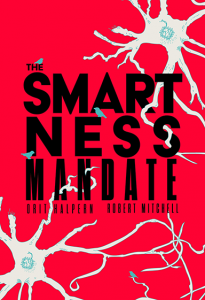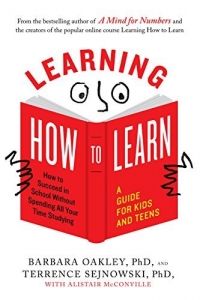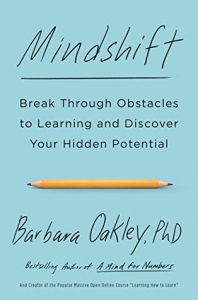“The Smartness Mandate” with Professor Orit Halpern
Smartness has permeated our lives in the form of smartphones, smart cars, smart homes, and smart cities. It has become a mandate, a pervasive force that governs politics, economics, and the environment. As our world faces increasingly complex challenges, the drive for ubiquitous computing raises important questions. What exactly is this ‘smartness mandate’? How did it emerge, and what does it reveal about our evolving understanding and management of reality? How did we come to view the planet and its inhabitants primarily as instruments for data collection?
In the book ‘The Smartness Mandate,’ co-authored by Professor Orit Halpern, the notion of ‘smartness’ is presented as more than just a technology, it is presented as an epistemology — a way of knowing. In this episode of Bridging the Gaps, I speak with Professor Orit Halpern, where we delve into the concept of smartness. We explore its historical roots and its cultural implications, particularly its emphasis on data-driven technologies and decision-making processes across domains such as urban planning, healthcare, and education.
Orit Halpern is Lighthouse Professor and Chair of Digital Cultures and Societal Change at Technische Universität Dresden. She completed her Ph.D. at Harvard. She has held numerous visiting scholar positions including at the Max Planck Institute for the History of Science in Berlin, IKKM Weimar, and at Duke University. At present she is working on two projects. The first project is about the history of automation, intelligence, and freedom; and the second project examines extreme infrastructures and the history of experimentation at planetary scales in design, science, and engineering.
Our conversation begins by discussing the idea of “smartness” as presented in the book. To understand it better, we look at a few examples. The book suggests that the smartness paradigm relies a lot on collecting data, analysing it, as well as monitoring people through surveillance. We talk about the possible risks and consequences of this data-focused approach for personal privacy and individual rights. Next, we talk about how the smartness idea connects with the concept of resilience. We also touch on the fact, as presented in the book, that the smartness paradigm often reinforces existing power structures and inequalities. We explore the biases and ethical concerns that may arise with the use of these technologies. Furthermore, we explore the possibility of using the smartness approach to promote fairness and equality. We talk about how it could be applied to create a more just society. We discuss the significance of multidisciplinarity, and the role of higher education institutions and educators to create an enabling environment for an informed discourse to address these questions. Professor Orit Halpren emphasises the importance of exploring these questions and addressing relevant concerns to make sure we create the kind of world we truly want for ourselves.
Complement this discussion with Cloud Empires: Governing State-like Digital Platforms and Regaining Control with Professor Vili Lehdonvirta and the listen to Reclaiming Human Intelligence and “How to Stay Smart in a Smart World” with Prof. Gerd Gigerenzer




Connect With Us